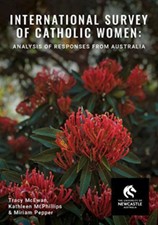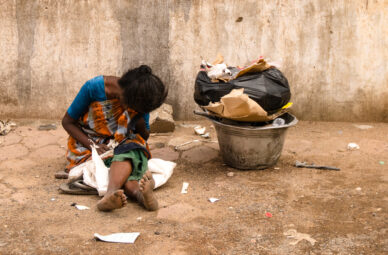
The Plenary Council is a personal and a communal journey
October 9, 2019The Plenary Council can and should be about our transformation and the dawning awareness that we are first and foremost a community of faith-filled people trying to follow Jesus of Nazareth.
Catholic laity don’t have to wait for anyone, priest or bishop or lay leader, to invite them to the table of Listening and Dialogue or Discernment. There is so much we can initiate and accomplish ourselves. We can become leaders in our own right – the right given to us by our Baptism.
I am not responsible for what the bishops will do, but I am responsible for myself. This graced moment in time will not come again in my lifetime. Between now and March next year, there is no time to lose. Wake up, Catholics of Australia! Our time has come.
A Reluctant Beginning
Disillusionment and cynicism made me reluctant to engage with the Plenary Council process. However, once I did, the process captured my enthusiasm. When I accepted the invitation of my parish council to act as a local animator, I did so wholeheartedly.
During the Listening and Dialogue phase, I engaged as many people as I could in conversations about the church and I facilitated 13 small group sessions.
I also attended large group meetings, including the Australian Catholic Women’s colloquium, Stirring the Waters, in Adelaide, and I continued reading as much as I could about reform and renewal in both the local and the global church.
A Journey of Misgivings and Learning
As the Listening and Dialogue phase transitions to the Discernment phase, I feel the need to share something of my misgivings and what I have learned with the wider community.
The first thing is this: in the main, as Catholics, we were ill-equipped for listening and dialogue. There are various reasons for this.
- The Catholic laity are used to being told what to think and how to act and are rarely asked for their opinion on anything, so have little practice in these skills in a church context and even less faith that they will achieve anything.
- Catholic laity carry burdens of hurt, disappointment or loss occasioned by the institutional church, and are understandably cynical about this Plenary Council in the wake of the Royal Commission. We needed to vent our feelings and do a lot of bitter complaining.
- Moderate Catholic Priests (too busy or too tired or simply not interested) have done on the whole little to promote or encourage the process, and lay leadership at the parish level, being rather thin on the ground, was practically ineffectual.
An Out-pouring of Spirit
Misgivings aside, the outcome of the Listening and Dialogue phase was that 222,000 people had a lot to say. By Ash Wednesday 2019 many of us had discovered our own distinctive voice in the crowd. The final full report is substantial and comprehensive.
I consider it an impressive achievement, so it seems terribly ungrateful to say that now we need to go much further. We took the opportunity to say everything we had to say, didn’t we? However, now it is time to sift and weigh. Now it is time to go deeper and offer practical solutions.
If the Catholic Laity were ill-equipped for Listening and Dialogue, are they even less equipped for discernment?
Discernment is a spiritual discipline that, for all its desirability, is not much practised at a local church level. Even after all my experience as a facilitator of listening and dialogue, and as someone familiar with practices of silence and discernment, I felt daunted by the prospect of leading a communal discernment process. Now that I have facilitated one small such group, I can confirm that it was exhausting and hard work, even if ultimately very satisfying.
What I now know for certain is that this discernment phase of the Plenary Council is our moment and we must grasp it with both hands. Yes, we can help write the agenda for the Plenary Council, but, much more than that, we can learn how to become a prayerful and discerning community.
We can stop blaming everyone else and realize that the future of the church is actually in our hands. We can finally grow up as Catholics and assume responsibility.

Author: Patricia Gemmell
Patricia recently graduated with a Masters in Theology, is a member of the Australian Grail National Leadership Team and has been a parishioner of St Leonard’s, Naremburn, for 34 years.










